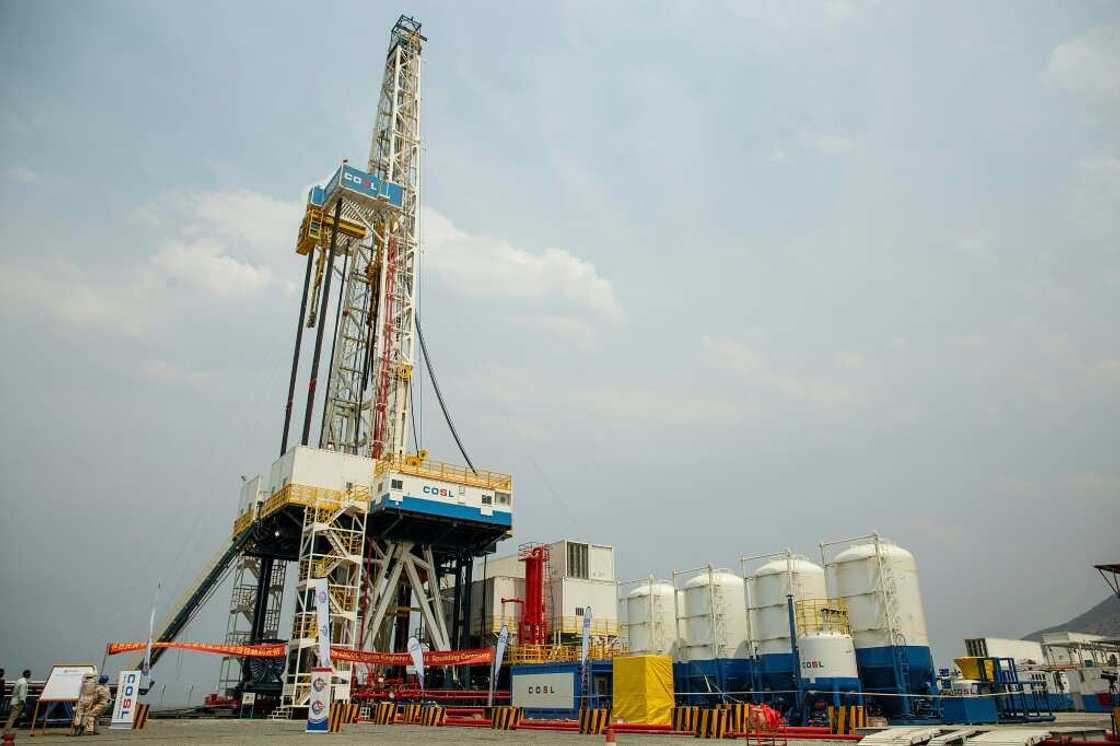Tanzania approves controversial $3.5 billion oil pipeline

Source: AFP
PAY ATTENTION: Сheck out news that is picked exactly for YOU ➡️ click on “Recommended for you” and enjoy!
Tanzania's government gave its approval on Tuesday for the construction of a $3.5 billion crude oil pipeline despite human rights and environmental concerns about the mega-project.
The 1,443-kilometre (900-mile) pipeline will transport crude from vast oilfields being developed in Lake Albert in northwestern Uganda to a Tanzanian port on the Indian Ocean for delivery to international markets.
Uganda's first oil is expected to flow in 2025 -- almost two decades after reserves were discovered in one of the world's most biodiverse regions.
The pipeline required approval from both countries, and last month Uganda issued a licence to the project operator, the East African Crude Oil Pipeline (EACOP).
"This construction approval marks another step forward to EACOP as it allows commencement of the main construction activities in Tanzania, upon completion of the ongoing land access process," EACOP Tanzania general manager Wendy Brown said at a function to receive the approval certificate.
The $10 billion oilfields and pipeline project is being jointly developed by France's TotalEnergies, the China National Offshore Oil Corporation (CNOOC), along with the state oil companies of Uganda and Tanzania.
PAY ATTENTION: Subscribe to Digital Talk newsletter to receive must-know business stories and succeed BIG!
It has been hailed as an economic boon for both East African countries, where many live in poverty.
But it has run into strong opposition from rights and environmental campaigners who say it threatens the region's fragile ecosystem and the livelihoods of tens of thousands of people.
Brown said about 13,000 households affected along the pipeline's route, including four percent of whom have been displaced, have been compensated.
'Stringent standards'
Tanzanian Energy Minister January Makamba rejected the environmental and rights concerns as "propaganda".
"There are a lot of noises in opposition to the project, Makamba said, but added: "We have complied with all the environmental, safety and human rights standards."
"We are proud of the pipeline because it will increase Tanzania’s influence in the world."
Uganda last month launched an oil drilling programme at the Kingfisher field on the southeastern edge of Lake Albert that is operated by CNOOC.
Tilenga, a second oilfield being developed by TotalEnergies on the north shore, has raised concerns because it extends into Murchison Falls, Uganda's largest national park.
There are an estimated 6.5 billion barrels of crude under the lake -- a 160-kilometre long body of water separating Uganda from the Democratic Republic of Congo -- of which about 1.4 billion are recoverable.
The reserves are expected to last up to 30 years, with production peaking at 230,000 barrels a day.
The underground heated pipeline is set to become the longest of its type when completed, expected in 2025.
"EACOP will comply with not only the laws of Tanzania and Uganda but also with the most stringent international standards," Brown said.
Source: AFP




